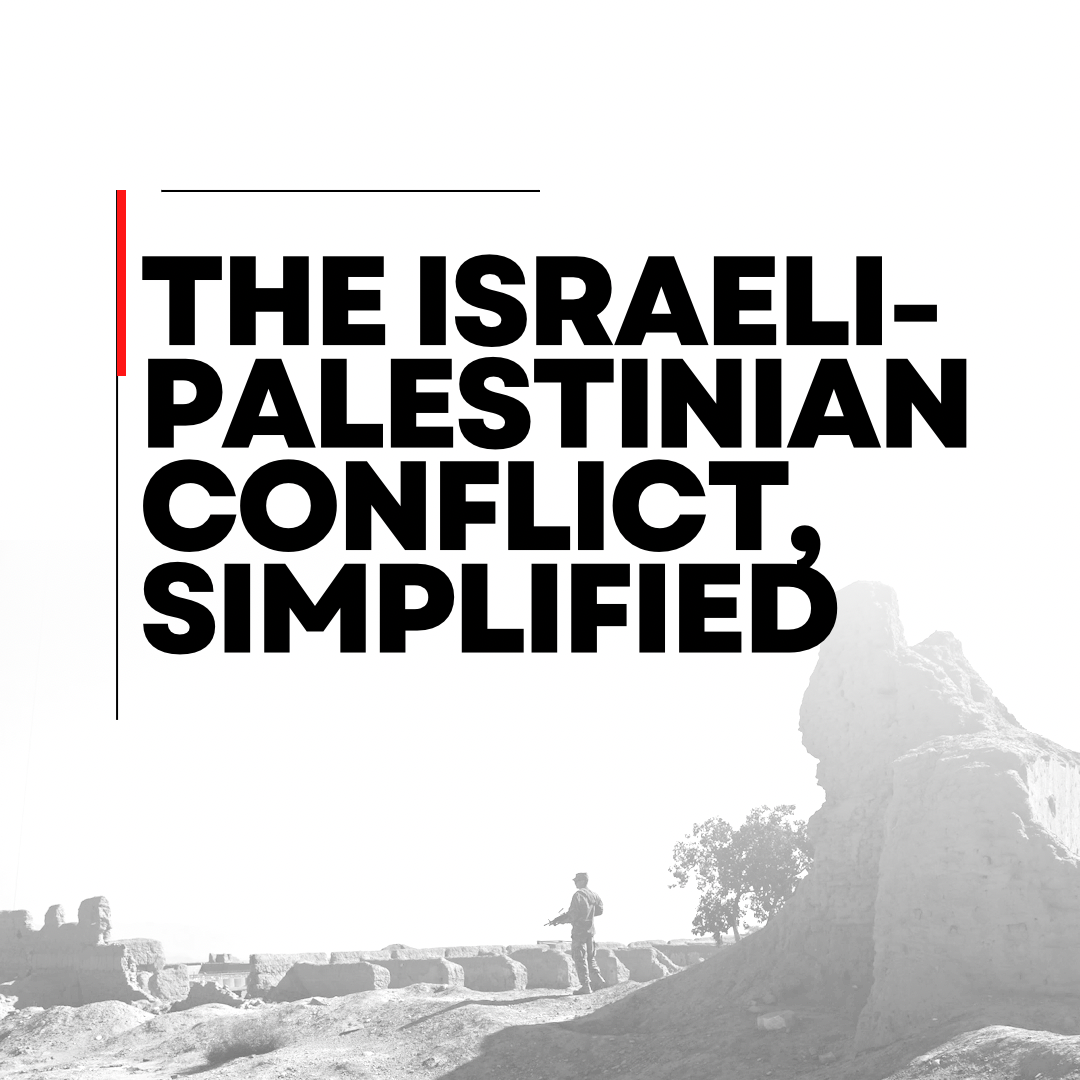The current Israel-Hamas war is a part of over a century of historical conflict.
On Oct. 7, Palestinian militant group Hamas stormed the blockaded Gaza Strip and entered nearby Israeli towns, resulting in the deaths of over 1,400 people and the capture of nearly 200 hostages. In response, Israel launched a series of airstrikes in Gaza with hopes to eliminate Hamas completely, which so far has killed nearly 2,700 people, including civilians.
The Gaza Strip is a 25-mile long Palestinian territory located between Israel, Egypt, and the Mediterranean Sea. The territory contains a population of 2 million people, with around 1.7 million being refugees. While the attack orchestrated by Hamas was unprecedented, it marks yet another example of the ongoing Israeli-Palestinian conflict.
From Roman times up until the mid-20th century, The West Bank, Gaza, East Jerusalem, and Israel were all considered a part of a land known as Palestine. Palestine was among former Ottoman territories placed under UK administration by the League of Nations in 1922. The British Mandate would incorporate the Balfour Declaration of 1917 into their administration, which expresses support for Palestine as “a national home for the Jewish people,” and the land would see an influx of Jewish Immigration from 1922-1947.
The large-scale immigration of Jewish people would see resistance from the Arab population already occupying Palestine as well as calls for independence. This resistance would lead to a rebellion in 1937 and acts of violence continuing to 1947, in which the UK would present the conflict to the UN.
In 1947, the UN General Assembly passed Resolution 181, which called for the partition of Palestine into two states, one Jewish and one Arab. In 1948, Israel would declare independence following the end of British rule, which would lead to the expulsion of over 700,000 Palestinians and the start of the first Arab-Israeli war.
The Arab-Israeli war would end with a victory for Israel, which not only kept the territory provided for them by the UN, but also captured areas meant for the Palestinian state. This war caused the forced relocation of Palestinians to Arab-controlled territory such as the West Bank and Gaza. The UN would respond to this relocation by passing Resolution 194, calling for the repatriation of Palestinian refugees to their homes. The specifications of the resolution would be debated in the decades that follow, with Palestinians claiming that the resolution establishes a “right to return.”
In 1967, the Six Day War between Israel and a coalition of Arab states would result in a decisive victory for Israel and the fleeing of 300,000 Palestinians. Israel would also gain control of Gaza, which it would hold until 2005.
In 2006, Hamas became the governing body of Gaza following a landslide victory in Palestinian legislative elections. In 2007, Israel would find a way to maintain control over Gaza through a land, sea and air blockade. This blockade would restrict the movement of goods and people in Gaza and effectively cut off the territory from the rest of the world.
After the establishment of the blockade, Hamas and Israel would confront each other multiple times over the years, with their last conflict being in 2021 when Palestinians were evicted from their homes in East Jerusalem and clashes occurred at al-Aqsa Mosque. In 2022, Israel would launch a counterterrorism operation in the West Bank in response to Palestinian attacks, which contributed to the largest number of deaths for both sides since 2005.
Clashes in the West Bank continued into 2023, further escalating tensions leading up to the attack by Hamas. According to Hamas’s military leader Mohammed Deif, the motivations for the attack were Israel’s long-running blockade, occupation of Palestinian territories and alleged crimes against Muslims.
The Israel-Hamas War has worsened conditions for people living in Gaza, with its inhabitants being cut off from food, water, fuel, etc. as Israeli Airstrikes continue. Thousands have been wounded and placed into crowded hospitals, and many are at risk of death with the low amount of supplies.
The long and complicated conflict between Israel and Palestine has led to the deaths of thousands of civilians. The lack of a resolution will only continue the violence occurring between the two nations.


